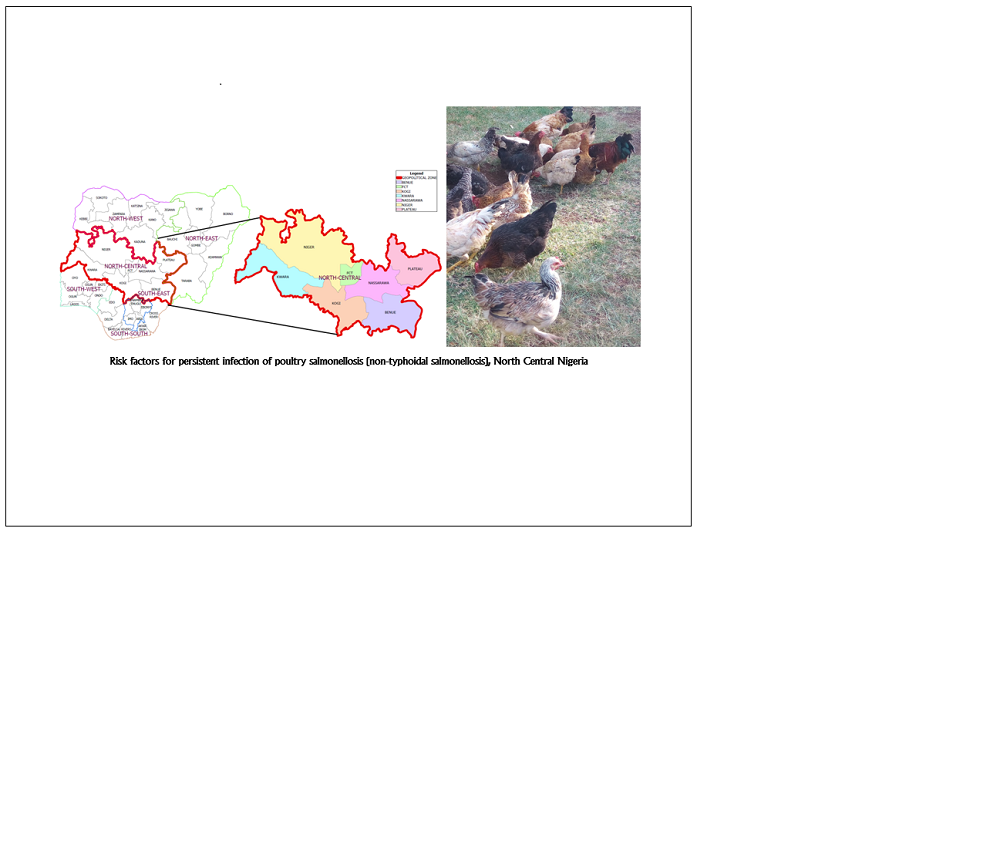Salmonellosis is a bacterial zoonosis with array of health conditions. Non-typhoidal salmonellosis (NTS) have a discrete adaptation to certain animals; in poultry, pullorum and fowl typhoid are its primary disease manifestations. The diseases are prevalent in the Nigerian poultry and have been well studied in Nigeria, but less so in the north central Nigeria (NCN). Using field sampling, laboratory methods and semi structured questionnaire in 1000 poultry farms from NCN, we explore the incidence and risk factors for the persistence of NTS infection in poultry. Approximately 41.6% of the farms have experienced NTS but only 6.3% have current infection with NTS. Farm experience of NTS moderately predicted awareness of salmonellosis. Increasing stock in smallholder farms, self-mixing of concentrate on the farm, usage of stream water, pen odour, non-adherence and partial adherence of farms to recommended poultry vaccination against pullorum and fowl typhoid, and lack of and non-adherence to biosecurity were identified risk factors that increased the odds of NTS infection in poultry. Antibiotic use practice may have reduced the isolation rate of NTS, yet NTS continues to challenge poultry farms in Nigeria. Identified risk practices must be mitigated intentionally and biosecurity and hygiene must improve to reduce the burden of NTS.

